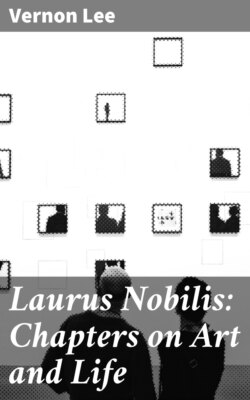Читать книгу Laurus Nobilis: Chapters on Art and Life - Vernon Lee - Страница 34
На сайте Литреса книга снята с продажи.
XI.
ОглавлениеThis feeling is increasing daily. Our deepest æsthetic emotions are, we are beginning to recognise, connected with things which we do not, cannot, possess in the vulgar sense. Nay, the deepest æsthetic emotions depend, to an appreciable degree, on the very knowledge that these things are either not such as money can purchase, or that they are within the purchasing power of all. The sense of being shareable by others, of being even shareable, so to speak, by other kinds of utility, adds a very keen attraction to all beautiful things and beautiful actions, and, of course, vice versâ. And things which are beautiful, but connected with luxury and exclusive possession, come to affect one as, in a way, lacking harmonics, lacking those additional vibrations of pleasure which enrich impressions of beauty by impressions of utility and kindliness.
Thus, after enjoying the extraordinary lovely tints—oleander pink, silver-grey, and most delicate citron—of the plaster which covers the commonest cottages, the humblest chapels, all round Genoa, there is something short and acid in the pleasure one derives from equally charming colours in expensive dresses. Similarly, in Italy, much of the charm of marble, of the sea-cave shimmer, of certain palace-yards and churches, is due to the knowledge that this lovely, noble substance is easy to cut and quarried in vast quantities hard by: no wretched rarity like diamonds and rubies, which diminish by the worth of a family's yearly keep if only the cutter cuts one hair-breadth wrong!
Again, is not one reason why antique sculpture awakens a state of mind where stoicism, humaneness, simplicity, seem nearer possibilities—is not one reason that it shows us the creature in its nakedness, in such beauty and dignity as it can get through the grace of birth only? There is no need among the gods for garments from silken Samarkand, for farthingales of brocade and veils of Mechlin lace like those of the wooden Madonnas of Spanish churches; no need for the ruffles and plumes of Pascal's young beau, showing thereby the number of his valets. The same holds good of trees, water, mountains, and their representation in poetry and painting; their dignity takes no account of poverty or riches. Even the lilies of the field please us, not because they toil not neither do they spin, but because they do not require, while Solomon does, that other folk should toil and spin to make them glorious.
